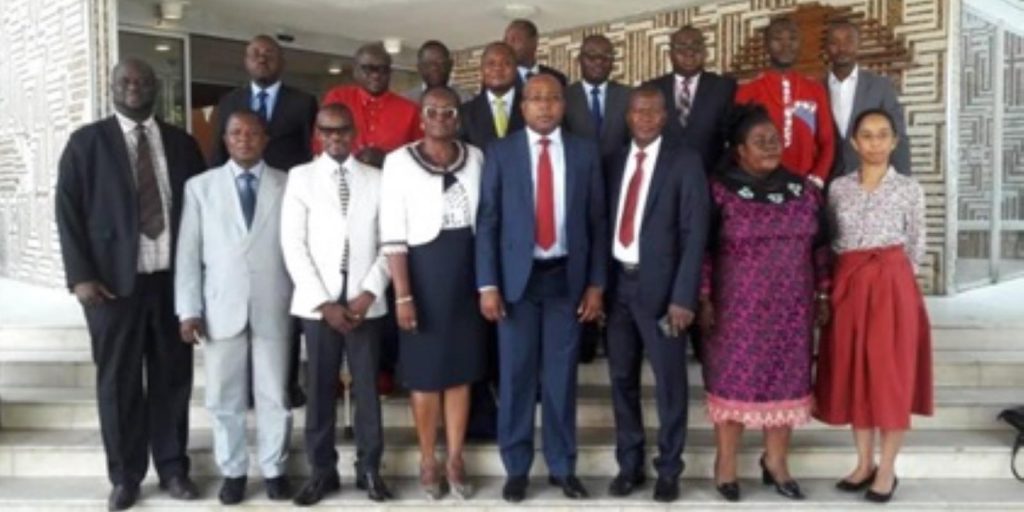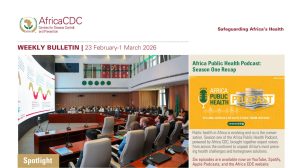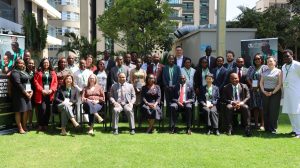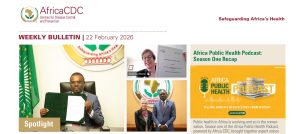Bureau members of the Regional Integrated Surveillance and Laboratory Network (RISLNET) Central Africa met in Libreville, Gabon, from 4 to 7 February 2019 to review their roles and responsibility and discuss plans for 2019.
“This meeting is to review progress on implementation in 2018, discuss the work plan for 2019 and review the roles and responsibilities of bureau members,” said Dr Mohammed Abdulaziz, RISLNET Programme Officer and Medical Epidemiologist at Africa CDC.
It was the first meeting of the bureau since their election in November 2018 and it was attended by all the six elected bureau members and representatives of the Gabon Ministry of Health, African Union Commission, Africa CDC, Pandora Alert and Global Health Systems Solution (GHSS).
Africa CDC and its implementing partner for RISLNET, GHSS, presented to the bureau for discussion its achievements in establishing and operationalizing RISLNET in Central Africa in 2018 and work plan for 2019. They presented the RISLNET Central Africa Statute which was approved during the general meeting in November, and the roles and responsibilities of bureau members.
Also presented were plans to support sample movement and testing in referral laboratories under RISLNET Central Africa and to ensure compliance with the International Health Regulations (IHR) by Member Countries of the Economic Community of Central African States (ECCAS).
Participants discussed how to integrate RISLNET activities with those of Africa CDC Regional Collaborating Centre (RCC) for Central Africa and to align them with the national public health objectives of ECCAS countries.
“We must ensure that RISLNET work plan aligns with national objectives,” said Dr Anne Marie, representative of the Gabon Ministry of Health.
Among others, bureau members began the process of taking full responsibility for the activities of RISLNET including finalization of all the draft documents and the website and the development of a strategic plan and work plan for 2019.
“We’ve made significant achievements, we will work with GHSS to ensure that RISLNET becomes fully functional, we are working on a plan of action for 2019 and once this is finalized we will forward it to Africa CDC for support,” said Dr Jean Akiana, Chair of the Bureau.







